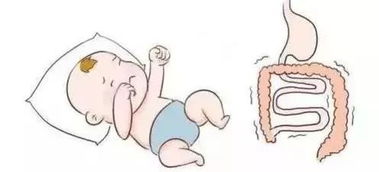厌食症症状和体征
Understanding and Addressing Symptoms of Anorexia
Anorexia nervosa is a serious mental health condition characterized by an intense fear of gaining weight and a distorted body image, leading to restrictive eating habits and excessive weight loss. Recognizing the symptoms of anorexia is crucial for early intervention and treatment. Here's a comprehensive overview of the symptoms and guidance on addressing them:
- Extreme Weight Loss: Individuals with anorexia often exhibit significant weight loss, sometimes to the point of being underweight for their age and height.
- Physical Weakness: Due to inadequate nutrition, they may experience weakness, fatigue, and fainting spells.
- Changes in Appearance: Physical signs may include thinning hair, brittle nails, and a pale complexion.
- Difficulty Sleeping: Insomnia or disturbances in sleep patterns can be common.
- Obsessive Behavior: Preoccupation with food, calories, and body image dominates their thoughts.
- Food Rituals: They may develop strict rituals around eating, such as cutting food into tiny pieces or rearranging it on the plate.
- Social Withdrawal: Avoidance of social situations involving food and isolation from friends and family are common.
- Depression and Anxiety: Feelings of worthlessness, anxiety, and mood swings are prevalent.
- Distorted Body Image: They perceive themselves as overweight despite being underweight, leading to unrealistic body image ideals.
- Perfectionism: An intense desire for perfection often extends beyond appearance to other areas of life.
- Denial: Many individuals with anorexia deny the severity of their condition and resist efforts to intervene.
Addressing symptoms of anorexia requires a multifaceted approach involving medical, psychological, and nutritional interventions:
Medical Intervention:
- Medical Assessment: A comprehensive medical evaluation is necessary to assess physical health and any complications arising from malnutrition.
- Monitoring: Regular monitoring of weight, vital signs, and laboratory tests helps track progress and identify any medical concerns.
- Medication: In some cases, medication may be prescribed to manage coexisting conditions such as depression or anxiety.

Psychological Intervention:
- Therapy: Cognitivebehavioral therapy (CBT), family therapy, and other psychotherapeutic approaches are effective in addressing the underlying psychological factors contributing to anorexia.
- Support Groups: Participation in support groups or peerled programs can provide encouragement, validation, and coping strategies.
- Education: Educating individuals and their families about anorexia, its causes, and treatment options fosters understanding and collaboration in the recovery process.
Nutritional Intervention:
- Dietary Counseling: Working with a registered dietitian to develop a balanced meal plan that promotes healthy weight gain and addresses nutritional deficiencies is essential.
- Meal Support: Structured meal times and supervision during meals help individuals overcome fear and anxiety associated with eating.
- Nutritional Supplements: In cases of severe malnutrition, nutritional supplements may be prescribed to restore essential nutrients.
Overall, early intervention and a comprehensive treatment approach are key to addressing symptoms of anorexia and promoting longterm recovery. It's essential for individuals struggling with anorexia to seek professional help and support from loved ones.
